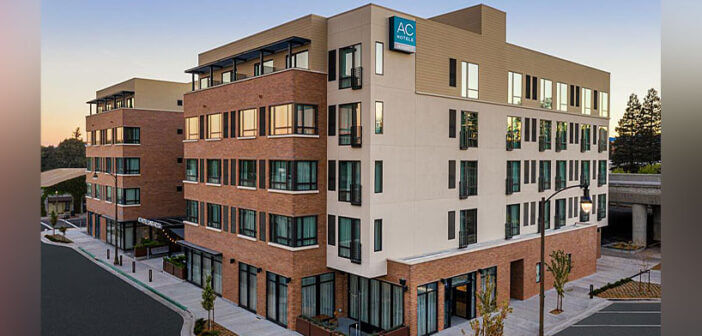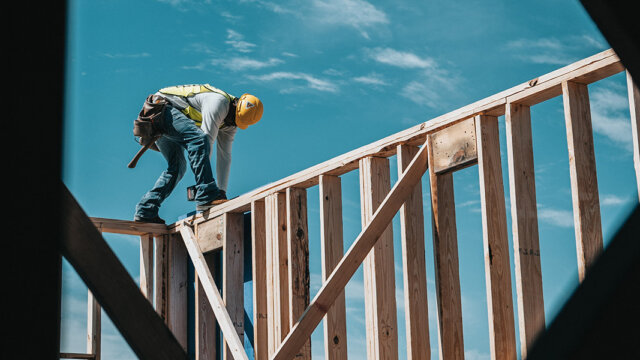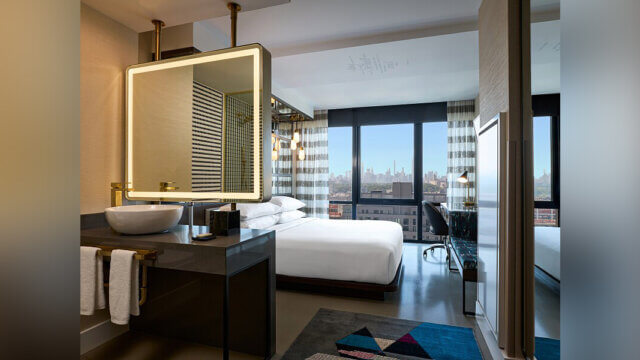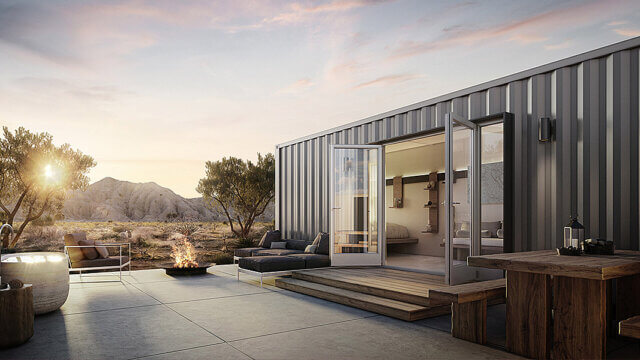As the popularity of modular construction in hospitality continues to grow, so does its use in upscale and luxury properties.
“From an owners’ perspective, the main reason modular construction is a good choice is that the cost of traditional construction continues to rise, making modular construction a more economically viable option,” said Suzie Hall, founder/CEO, The Cornerstone Collective. “The biggest savings is in the speed to market and the certainty of schedule. The drastic reduction of change orders in the construction process is what is behind that. So, from the owner/developers perspective, that is very enticing and very compelling.”
The modular process allows for more control over the final product. With modular, an entire guestroom, including plumbing, electrical and FF&E, is manufactured away from the hotel site in a factory. Once completed, the prefabricated units get transported to the hotel site, where the hotel’s base podium has already been built. The units get stacked into place by crane, at which point workers complete the building on-site, including electrical, plumbing and other finishing work.
For Mitch Lund, project manager with construction consultant Fulcrum, modular construction can be used for all types of hotels, but it is the choice of materials used that makes the difference. “Really, the rating of the hotel (i.e. midscale, upscale, luxury) has no real effect on volumetric modular being that, primarily, it’s a matter of finish material specification rather than quality of construction,” he said. “High-end finishes such as countertops, flooring, fixtures, appliances and the like don’t know they’re in a modular building.”
Hall agreed, “In luxury and upscale, what do guests want and expect?” she said. “They expect quiet and privacy and that sense of relief and luxury experience when they walk into a space and want to hear the music and hear the water if it’s on the water. You typically don’t achieve that experience very easily with traditional build construction.”
Lund noted that the quality of construction that upscale and luxury hospitality demands plays right into the hands of certain modular manufacturers and methods. “First of all…as each module has its own floors and walls, the separation and insulation between rooms is doubled,” he said. “A modular hotel is likely the quietest hotel you’ll ever stay in.”
“With the box module approach for the guestroom, every single finish, every single light fixture, every single piece of FF&E and artwork can be customized to the level of any other luxury brand out there,” Hall added. There’s no limitations on that.”
Lund also said that with robotics and automation working its way into modular manufacturing, the precision that the robotics demand requires that they have to use No. 1 framing lumber instead of No. 2 framing lumber. “Right from the start, even the materials used are of the highest quality, which is specifically in line with the values of luxury and upscale hotels,” he said.
He continued, “With steel-framed modular, as required for high-rise hotels, the precision of materials is every bit the equal or superior of luxury or upscale on-site construction, being that the manufacturing environment, as opposed to work performed at significant heights and in unpredictable or unfavorable conditions, is much more conducive to higher levels of quality and precision.”




